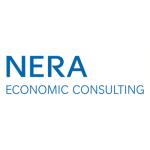The German TP audit landscape before 2020
However, in tax disputes with taxpayers, tax authorities have often felt constrained from imposing major income adjustments due to administrative limitations on the amount of information they could gather, and the degree to which they could use methods different to those of the taxpayer to impose adjustments.
In light of the above, the German Ministry of Finance has published administrative guidelines related to tax TP audits. While such guidelines do not constitute formal tax law, they strongly influence the TP practice, especially in tax audits. This landscape is likely to drastically change the balance of power between taxpayers and tax authorities as well as the outcome of tax audits in Germany. This article focuses on the changes that are likely to have the most profound impact.
Use of alternative TP methods by tax authorities
The guidelines introduce the ‘best method rule’ to German TP compliance principles. This means that, in contrast to the past, tax authorities can now reassess transfer prices and make income adjustments even if the TP documentation is formally technically compliant.
For their inter-company transactions, taxpayers have to justify why the chosen TP methods meet a ‘best method’ standard. While this concept is familiar from other tax jurisdictions, like the US, a distinct particularity in the German case is that German tax authorities have the discretion to corroborate the result of the taxpayer’s analysis through an alternative method of their own choice. If the tax authorities’ alternative method analysis leads to materially different results and the tax authorities deem such results as more reliable, they can now impose income adjustments. The standard of what qualifies as ‘more reliable’ rests entirely in the discretion of tax authorities.
Increased cooperation obligations
These enhanced powers relate not only to information directly available to the German taxpayers—like confidential expert opinions, emails, etc.—but also extends to information only directly available to other group companies.
The administrative guidelines now presume that, prior to engaging in transactions with related parties, the taxpayer should ensure (e.g. through contractual arrangement) that the counter-party will prepare, maintain, and submit information that may be requested for the taxpayer to be compliant in a future German tax audit.
For example, in business restructurings where German intangibles are transferred, exit charges are usually computed based on ex-ante valuations. Post-transaction, in the past, German taxpayers were often not able to provide financial information from the transacting party for German authorities to verify whether the ex-ante valuation was distorted by unreasonable expectations.
In the future, if the German taxpayer is not able to provide the requested ex-post information, they would be formally non-compliant, which gives the authorities much larger discretion to reassess TP adjustments than in the past.
A more aggressive approach to TP audits
It is to be expected that the administrative principles will also apply to recent tax audits covering past years. While the administrative guidelines recommend that arising tax controversies can in the future be solved in the course of mutual agreement procedures (MAPs) or advance pricing agreements (APAs), there is a broad concern in the German TP community that TP tax controversies will dramatically increase in number, scope, and financial impact.
The economic crisis and related fiscal pressure will exacerbate TP-related tax disputes. On average, tax compliance and controversy costs will drastically rise for German taxpayers.
Conclusion and recommendations
The application of ‘alternative methods’ to assess TP will certainly proliferate, which will hinder traditional dispute resolution with other tax authorities that are unfamiliar with this unconventional approach. As a consequence, practitioners will inevitably experience more cases of tax litigation against presumably unreasonable adjustments by German tax authorities.
In view of upcoming controversies, it is recommended that taxpayers prepare diligently. First, they should review their tax audit strategies and think proactively about how to collaborate with German authorities in providing requested information. Inevitably, taxpayers should be prepared to share more information, but they will have to be very diligent about precisely what data should be shared. A good communication strategy with field tax auditors will be more critical than ever.
Regarding economic analysis, apart from explaining why established TP analysis meets the ‘best method rule’, taxpayers need to anticipate alternative methods that tax authorities are likely to consider and decide how to construct a second line of defence that consistently defends the outcome of the selected ‘best method’ analysis. If taxpayers can corroborate their TP analysis under the ‘best method’ approach through a secondary method in view of expected challenges, they have a significantly greater chance that tax authorities will not invest in an alternative method analysis or, if they do, taxpayers are more likely to prevail with the outcome of their own analysis, whether in the tax audit, in an MAP, or in tax litigation.
As a practical example, NERA Economic Consulting have recently prevailed in a tax controversy where tax authorities challenged royalty solutions and TNMM margins for the German distributor of a European business-to-business (B2B) industrial manufacturer. Proactively adopting the position of the tax authorities (that the local distributor made some valuable DEMPE contributions in the field of marketing intangibles—a standard challenge by German authorities used to reject TNMM analysis for distributors), our team conducted a cooperative game theoretical analysis on how the distributors and related transactional parties would share brand- and marketing-related residual profit in view of their relative value contributions. We could quantitatively demonstrate that, as the DEMPE contribution of the distributor was limited, the overall margin/profit share to which the distributor was entitled was still within the range established by traditional TNMM analysis. As an outcome, the tax authorities abstained from further TP adjustments.
Yves Hervé
Managing director
T: +49 69 710 447 508
Philip de Homont
Director
T: +49 69 710 447 502













